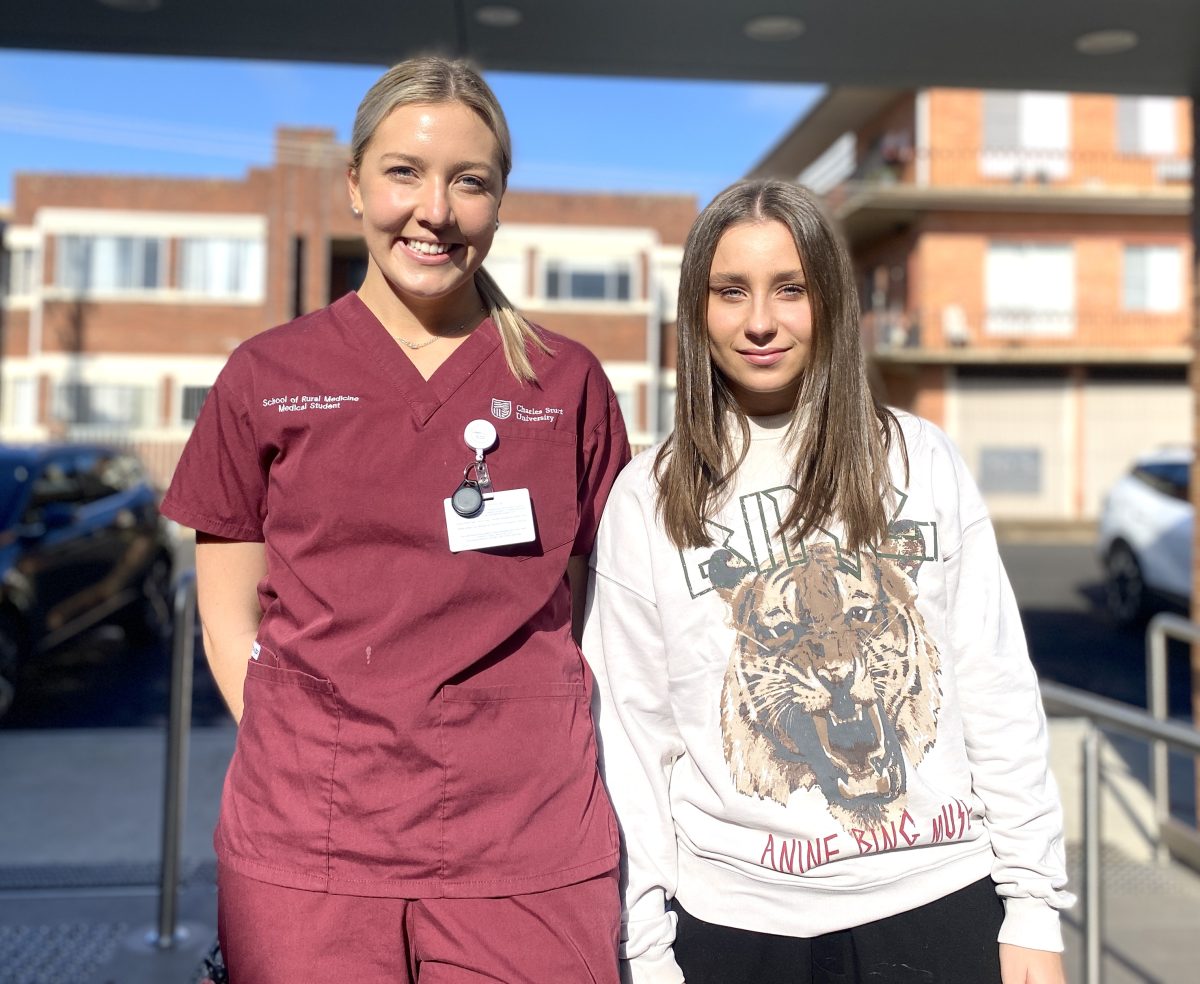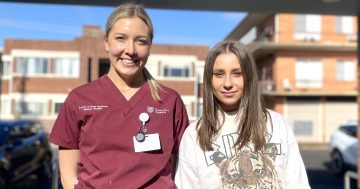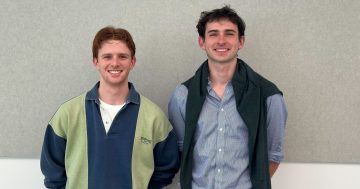
Abbey Fedrigo says medical students from rural areas need more support. She is pictured with her mentor, Georgia Goodhew. Photo: Oliver Jacques.
A Griffith student has backed independent MP Monique Ryan’s proposed law change to introduce a government payment for medical students while they undertake compulsory placements.
From 1 July, students doing teaching, nursing, midwifery, and social work have been eligible to receive a weekly payment of up to $331.50 to support them during compulsory internships or placements.
Medical students were excluded from this benefit, but this could change if Dr Ryan’s draft amendment to a government bill aimed at cutting student debt is passed by both Houses of Parliament.
Griffith’s Abbey Fedrigo, who is doing a pre-medicine degree at the University of Wollongong, believes a payment for her peers is essential.
“I find it hard to do paid work now, and I’m not even in medical school yet,” she said.
“We are required to study more than 50 hours per week, so I only have time to work during the university holidays, when I go back to Griffith. But that’s not enough to sustain you all year.”
Ms Fedrigo thinks it’s unfair that teaching and nursing students receive the payment but their medical counterparts miss out.
“A placement is work,” she said. ”Med students have to do them, there is no choice. You also have to study while you’re doing the placement. There’s no time to get a paid job. It should be the bare minimum to get some sort of payment.
“It’s expensive for me to live in Wollongong – rent for a studio is $350 a week. It’s even worse for those in Sydney. How do they expect us to live?”
Australian medical students are required to undertake 2000 hours of unpaid clinical placements, often in rural and regional settings, while incurring a significant financial burden.
Australian Medical Association (AMA) president Dr Danielle McMullen said in the face of ongoing workforce shortages, it was simply “odd” that medical students were not eligible for prac payments while students from other disciplines received financial support.
“It really is odd to exclude our medical students from the same financial help other students receive while expecting them to undertake practical placements, often in rural, regional and remote areas,” Dr McMullen said.
“I wrote to the Education Minister last year to extend the scheme to medical students, especially as we are struggling to fill rural and regional healthcare positions.
“We again urge the government to get on board and support Dr Ryan’s amendment, which would remove the inequity faced by medical students and remove disincentives to get our medical students out bush.”
The AMA says that ultimately, it is rural and regional patients who suffer as a result of the status quo.
“Helping these students stay and undertake their practice in rural and remote communities will mean more doctors in areas that struggle the most with access,” Dr McMullen said.
“Removing the unfair financial exclusion of medical students can make a real difference to our future medical workforce and we encourage the government to get on board as part of efforts to improve rural access to medical services.”









